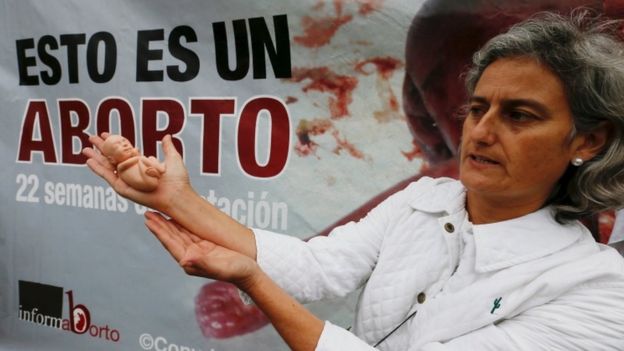Chile lawmakers lift abortion ban introduced by Pinochet

Chile's lower house of Congress has approved a proposal that lifts a ban on abortion in cases of rape, when there is health risk for the mother, or when the foetus is not viable.
The draft, which was submitted by Michelle Bachelet's government, needs Senate approval to become law.
Despite being predominantly Catholic, Chile allowed abortion until 1989.
But the practice was banned by General Augusto Pinochet in one of the last acts of his military government.
"Incredible, the motion is passed," said the leader of the Chamber of Deputies, Marco Antonio Nunez.
Opinion polls say most Chileans approve the change.
"This is an historic day. We see the political will to let women make their own decisions," said lawmaker Karol Cariola of the Communist Party, which is part of Ms Bachelet's governing coalition.
The proposal was approved by 66 to 44 votes.
The government, which tabled the bill 14 months ago, managed to get the support of some members of the conservative Christian Democrats.
"This is a setback for protection of the unborn," said Claudia Nogueira of conservative Independent Democratic Union party.
Chile is one of seven Latin American countries where there is still a total ban on abortion.
The others are El Salvador, the Dominican Republic, Haiti, Honduras, Nicaragua and Surinam.
Only Cuba, Guyana, Puerto Rico and Uruguay allow abortions in cases other than rape, incest or threats to a woman's health.
In 2012, Uruguay's congress voted narrowly to legalise abortions during the first 12 weeks of pregnancy.
In Mexico, only Mexico City has legalised abortion, during the first 12 weeks.
Политика конфиденциальности | Правила пользования сайтом









